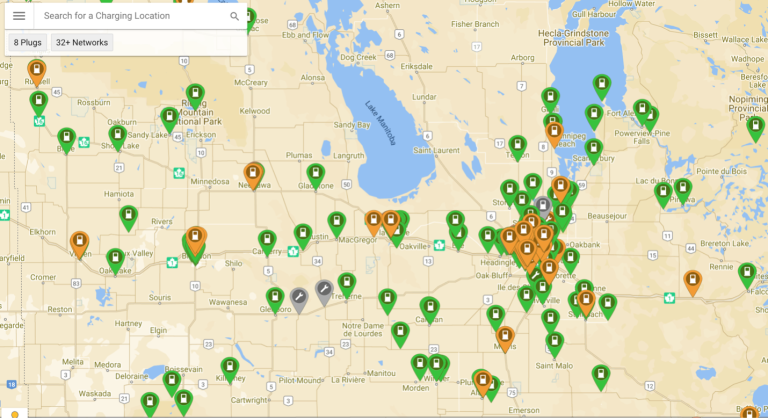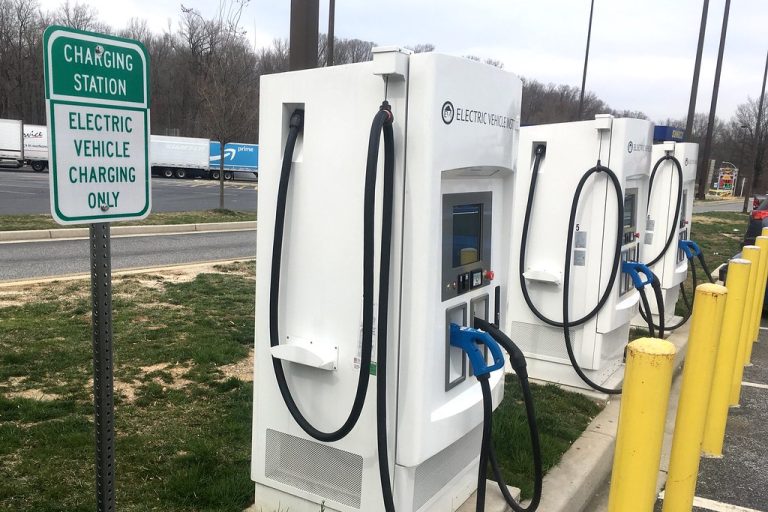As Manitoba embraces the transition to electric vehicles (EVs), the province is planning significant investments in charging infrastructure to support this shift. Currently there are just under 400 EV charging stations in Manitoba. From urban centers like Winnipeg to rural areas and major highways, the expansion of EV charging networks is underway, promising a more accessible and sustainable transportation future for Manitobans.
Winnipeg: Leading the Charge
In Winnipeg, efforts to enhance EV charging infrastructure are gaining momentum. Currently, there are 285 electric vehicle charging stations in the city that consist of level 2 and level 3 ports. In Winnipeg, 82% of charging stations are level 2, and 18% are level 3 fast charging stations.
Last year, Manitoba invested a grant of $176,000 to Eco-West, a Manitoba green infrastructure non-profit to implement 3 new level 2 charging stations around McDonald’s locations. Manitoba plans to continue this expansion in Winnipeg and cater to the growing demand for EV charging in the city.
Rural Areas: Bringing Charging to Every Corner
In early 2024, the Manitoba Minister of Environment and Climate Change announced that Manitoba is committed to building more electric vehicle charging stations across the province. Recognizing the importance of equitable access to EV charging, efforts are underway to expand infrastructure beyond urban centers into rural areas. The provincial grant announced in early 2023 also planned the implementation of the first charging stations in The Pas, Thompson, and Ils des Chenes. As well, the government of Manitoba invested another $150,000 to Eco-West to implement 1 charging station in Holland, 1 in Cypress River, and 3 in Treherne Manitoba. Remote communities and towns across Manitoba are seeing the installation of new charging stations, ensuring that EV drivers can travel with confidence regardless of their location. These investments aim to bridge the gap between urban and rural areas, fostering EV adoption across the province.
Major Highways: Enabling Long-Distance Travel
The government of Manitoba recognizes the challenges of driving long distances on highways with electric vehicles. Manitoba’s major highways, including the Trans-Canada Highway and Provincial Trunk Highways, are set to feature a network of charging stations strategically placed in towns along them. These stations will allow EV drivers to recharge quickly and continue their journeys, making intercity travel convenient and accessible for electric vehicles.
To see an up-to-date map of all charging station locations across Manitoba, check out the PlugShare EV Charger Map, EVHype Charging Directory, or Google maps! You can also visit ChargeHub to view charging stations in towns across Manitoba.

Is there a Universal Charging Adaptor?
In North America, most electric vehicles use the same connectors for level 1 and level 2 charging which are AC plugs. However, not all electric vehicles are equipped with the connector to use level 3 fast-charging stations with DC plugs. To ensuring compatibility between charging stations and vehicles, the Combined Charging System (CCS) has emerged as a widely adopted standard, supported by most EV manufacturers. This universal adaptor supports both AC charging and DC charging and allows EV drivers to charge their vehicles at CCS-compatible level 2 or level 3 charging station, providing convenience and flexibility regardless of the brand of the vehicle.
Read more: What is Combined Charging System (CCS) for Electric Vehicles?

Electric vehicle transportation is gaining momentum in Manitoba, driven by investments in EV charging infrastructure across urban areas, rural areas, and highway networks. As universal adaptors ensure compatibility between charging stations and vehicles, Manitobans can embrace the transition to electric mobility with confidence, knowing that the charging infrastructure is evolving to meet their needs.


